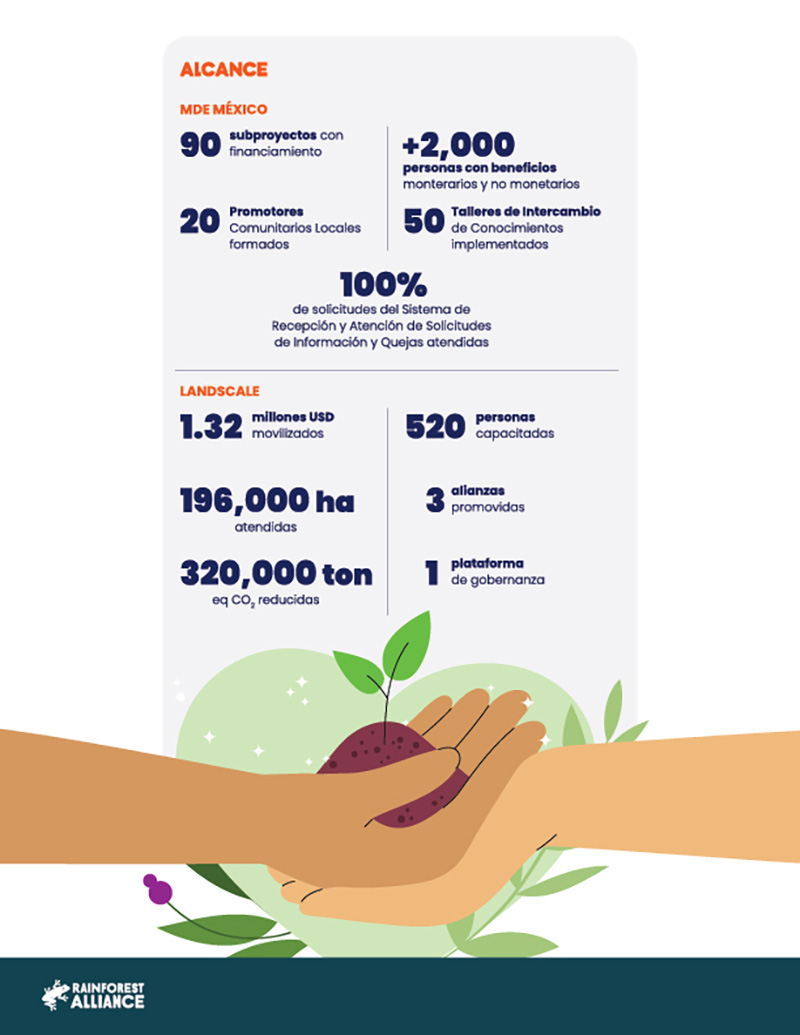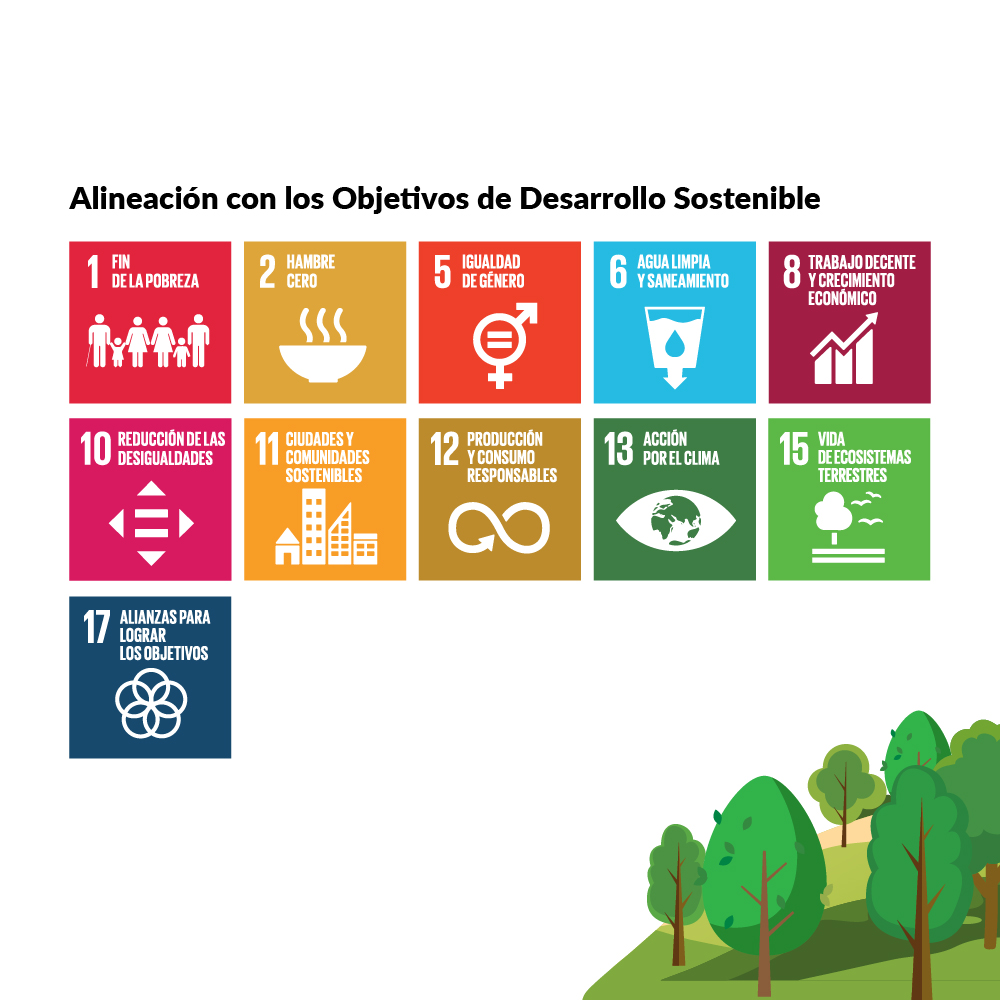Regional initiatives implemented
- Dedicated Grant Mechanism for Indigenous Peoples and Local Communities (DGM Mexico)
- Implementation of the LandScale assessment framework in Mexico (LandScale)


DGM Mexico: Strengthen the capacity of forest-dependent people and implement best practices across different productive sectors through REDD+, aiming to catalyze a transition toward a sustainable, low-carbon rural development model.
LandScale: Use the LandScale assessment framework to align Mexico’s greenhouse gas mitigation strategies with sustainable production activities already underway in the region, with the goal of achieving significantly reducing greenhouse gas emissions at the landscape level.



DGM Mexico
LandScale
Click on the icon to learn more

